
In recent years, technological advancements have played a crucial role in optimizing production processes, improving product consistency, and ensuring sustainability. This article explores the traditional methods of yoghurt production, the challenges faced by manufacturers, and how modern technology is revolutionizing the industry.
Traditional Yoghurt Production Process
At its core, yoghurt production involves a few basic steps: pasteurization, cooling, inoculation with starter cultures, fermentation, and packaging. In traditional dairy plants, the process begins with the pasteurization of milk to eliminate harmful microorganisms. This is typically done at temperatures between 85-95°C (185203°F) for 15-30 minutes.
After pasteurization, the milk is cooled to a suitable temperature (typically 4345°C or 109-113°F) before the addition of live bacterial cultures, primarily Lactobacillus bulgaricus and Streptococcus thermophilus. These starter cultures convert lactose into lactic acid, causing the milk to thicken and develop the characteristic tangy taste of yoghurt.
The inoculated milk is then transferred into fermentation tanks or containers and allowed to incubate for several hours. Once the desired acidity and consistency are achieved, the yoghurt is cooled rapidly to stop further fermentation and prevent the development of unwanted flavors. The final stage involves packaging, which can be done in various forms, including individual cups, larger tubs, or pouches.
Challenges in Traditional Yoghurt Production
Denne historien er fra December 2024-utgaven av Food & Beverages Processing.
Start din 7-dagers gratis prøveperiode på Magzter GOLD for å få tilgang til tusenvis av utvalgte premiumhistorier og 9000+ magasiner og aviser.
Allerede abonnent ? Logg på
Denne historien er fra December 2024-utgaven av Food & Beverages Processing.
Start din 7-dagers gratis prøveperiode på Magzter GOLD for å få tilgang til tusenvis av utvalgte premiumhistorier og 9000+ magasiner og aviser.
Allerede abonnent? Logg på

Therapeutic Use Of Indian Winter Cherry (Ashwagandha)
Ashwagandha is one of the most important herbs in Ayurveda, which is a traditional form of alternative medicine based on Indian principles of natural healing. Ashwagandha is a small, woody shrub in the Solanaceae family that grows about two feet in height.
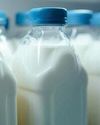
The Dairy Chain Revolution: Ensuring Freshness and Efficiency
Dairy products are an integral part of the food processing industry, forming milk, cheese, yogurt, and butter are highly perishable and demand meticulous care to preserve their quality and safety throughout their journey from farm to consumer.
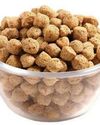
Plant-Based Proteins from Soybean: A Comprehensive Exploration
Introduction - In recent years, the global food landscape has witnessed a remarkable shift toward plant-based diets, driven by a growing awareness of health, environmental sustainability, and ethical considerations.
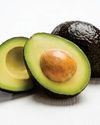
Avocado: The Green Ally in the Fight Against Diabetes
In a world inundated with processed foods laden with excessive sugars, salts, and artificial additives, rates of diabetes across the world have been rising over the past decades link.
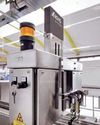
Inspection Technology from KHS: Precision and early detection for holistic line thinking
KHS GmbH continuously develops and modernizes its inspection technology.
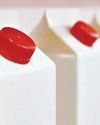
Packaging for the Future: How Aseptic Solutions are Transforming the Dairy Industry
Introduction - The Dairy Aseptic Packaging Market T is a dynamic and transformative sector within the rapidly evolving food and beverage industry.

Sidel introduces its breakthrough bottle washer with powerful dual technology - Hydra Ultrasonic
With beverage bottlers requiring a solution that reduces production costs while improving their environmental footprint, Sidel has launched its new bottle washer which combines chemical and ultrasound technology for the highest performance. Sidel will unveil Hydra Ultrasonic for the first time at the international trade show, BrauBeviale.
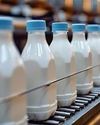
Revolutionizing Dairy Packaging: Technology & Innovations Shaping the Future
Dairy packaging plays a vital role in maintaining the quality and safety of a wide variety of products, including milk, butter, cheese, and yogurt.

Proost: Brewing Passion, Driving Innovation, Redefining Quality
In an exclusive conversation Mr. Tarun Bhargava, Co-Founder & CEO of Proost, speaks about the brand's inspiring journey, its unique approach to brewing, and the innovative strategies driving its success. From Proost's commitment to quality and sustainability to its adaptability in a dynamic market, Tarun shares insights into what makes Proost a standout in the beverage industry.

Non-Alcoholic Beverages: A Booming Industry Across Global Markets
The global non-alcoholic beverage market has been expanding steadily, with an estimated value of over USD 1 trillion as of 2023. This growth is expected to continue, fueled by a shift in consumer preferences toward healthier and more mindful consumption habits. The market encompasses a variety of products, including non-alcoholic beers, soft drinks, juices, and functional beverages like energy drinks and flavored waters.